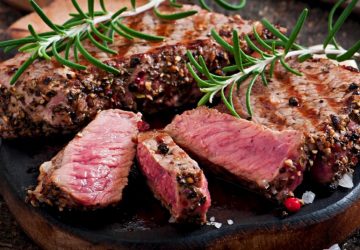In a bid to discourage the public from assuming Orson Welles-like physical proportions, medical groups in both Great Britain and Australia are now recommending that their governments add punitive taxes to high-fat and high-sugar foods. Given that the dreaded “Twinkie tax” was first popularized by American food puritan Kelly Brownell, could the U.S. be far behind?
The Vice President of the Australian Medical Asociation endorsed taxes on so-called “bad” foods this week, admitting in the same breath that such a plan would constitute a “shock tactic.” But a spokesman for Australia’s leading diabetes prevention organization warned that “not all fats are bad for you,” predicting that food companies would wind up replacing healthy fats with sugars and starches in order to spare their products from being taxed.
Fat-tax advocates in the United Kingdom are facing a different kind of hurdle. Their proposal would add a whopping 17.5 percent tax on foods like ground beef, potato chips, sausages, pies, pastries, butter, and cream. And some analysts are already complaining that it would amount to a regressive tax on low-income Brits, who (according to one Reuters wire story) “tend to eat proportionally larger quantities of cheap, high-fat food.”
Here in the U.S., it’s hard to imagine that Twinkie-tax advocates like Brownell and Michael Jacobson (who leads the Center for Science in the Public Interest) will waste much time in jumping on what appears to be a swiftly accelerating train. Jacobson has already endorsed “taxes on butter, potato chips, whole milk, cheeses, [and] meat.” Food maven and Food Politics author Marion Nestle is firmly on board, telling a recent American Public Health Association convention that the feds should be “adjusting tax policies” in order to convince people to eat the “right” things.
Jacobson claimed last year that nobody would object to targeted taxes on soda pop. Jacobson and Brownell argued in a joint 2000 paper that “a steep [food] tax would probably reduce the consumption of the taxed foods,” but “a small tax may be more politically feasible and would mostly go unnoticed by the public.“
And add to the mix the animal-rights nuts at PETA, who want the federal government to tax all meat, dairy, and fish out of people’s practical reach.
As our national rhetoric about obesity gains momentum, it’s only a matter of time before American “fat tax” proposals are elevated to the level of more reasonable ideas. But if we’re very lucky, U.S. lawmakers will recognize the seminal difference between the United States and all those “other” nations, erring on the side of individual liberty and consumer choice.
As one New Jersey columnist put it last week, “there is no such thing as fattening food. All food will make you fat if you eat too much of it. Conversely, no food will make you fat if you don’t overdo it.”


